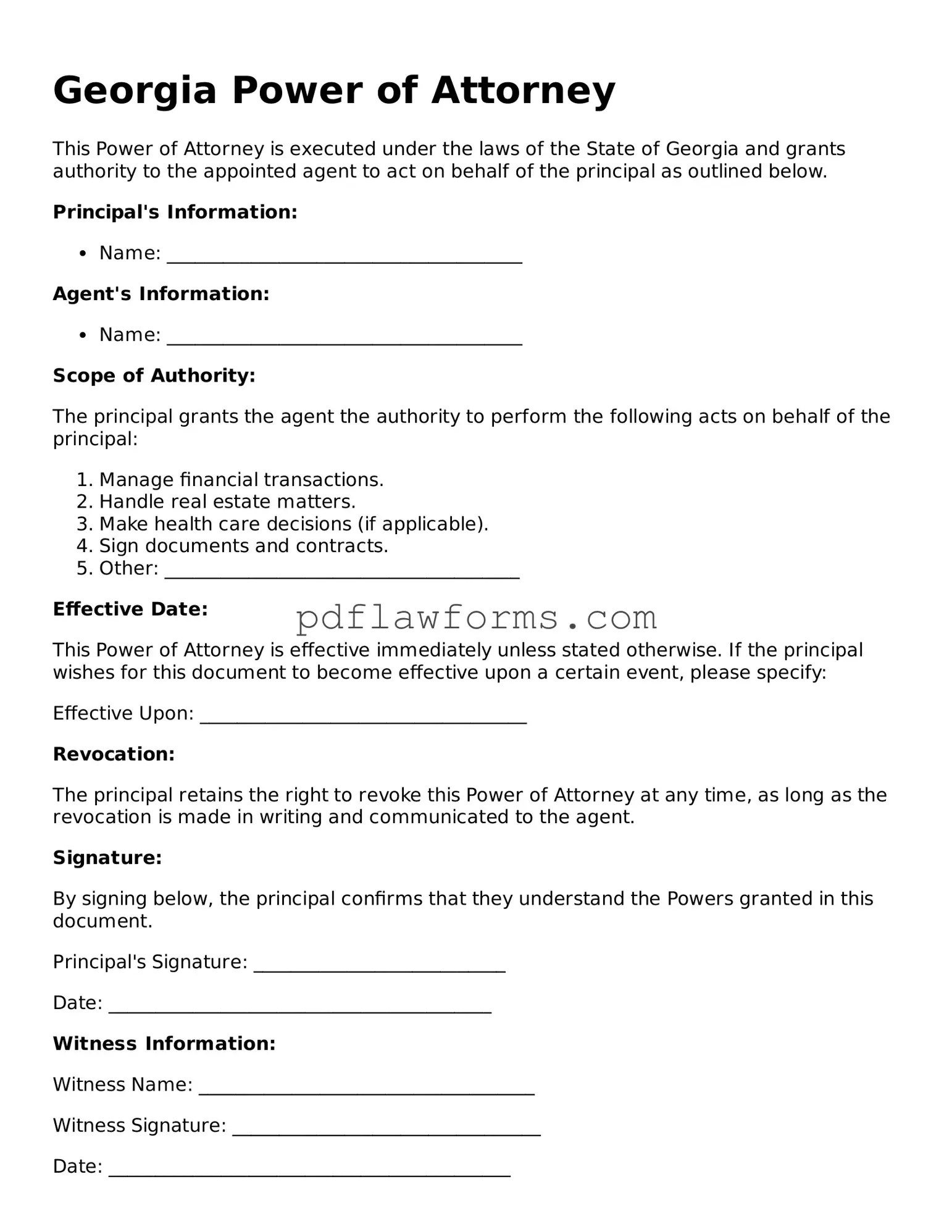Power of Attorney Form for the State of Georgia
The Georgia Power of Attorney form is a legal document that allows one person to authorize another to act on their behalf in financial or legal matters. This form is essential for individuals who wish to ensure that their affairs are managed according to their wishes, especially in situations where they may be unable to make decisions themselves. Understanding its importance and the process of filling it out can provide peace of mind and clarity.
Ready to take the next step? Fill out the form by clicking the button below.
Make My Document Online

Power of Attorney Form for the State of Georgia
Make My Document Online
You’re halfway through — finish the form
Edit and complete Power of Attorney online, then download your file.
Make My Document Online
or
⇩ Power of Attorney PDF
